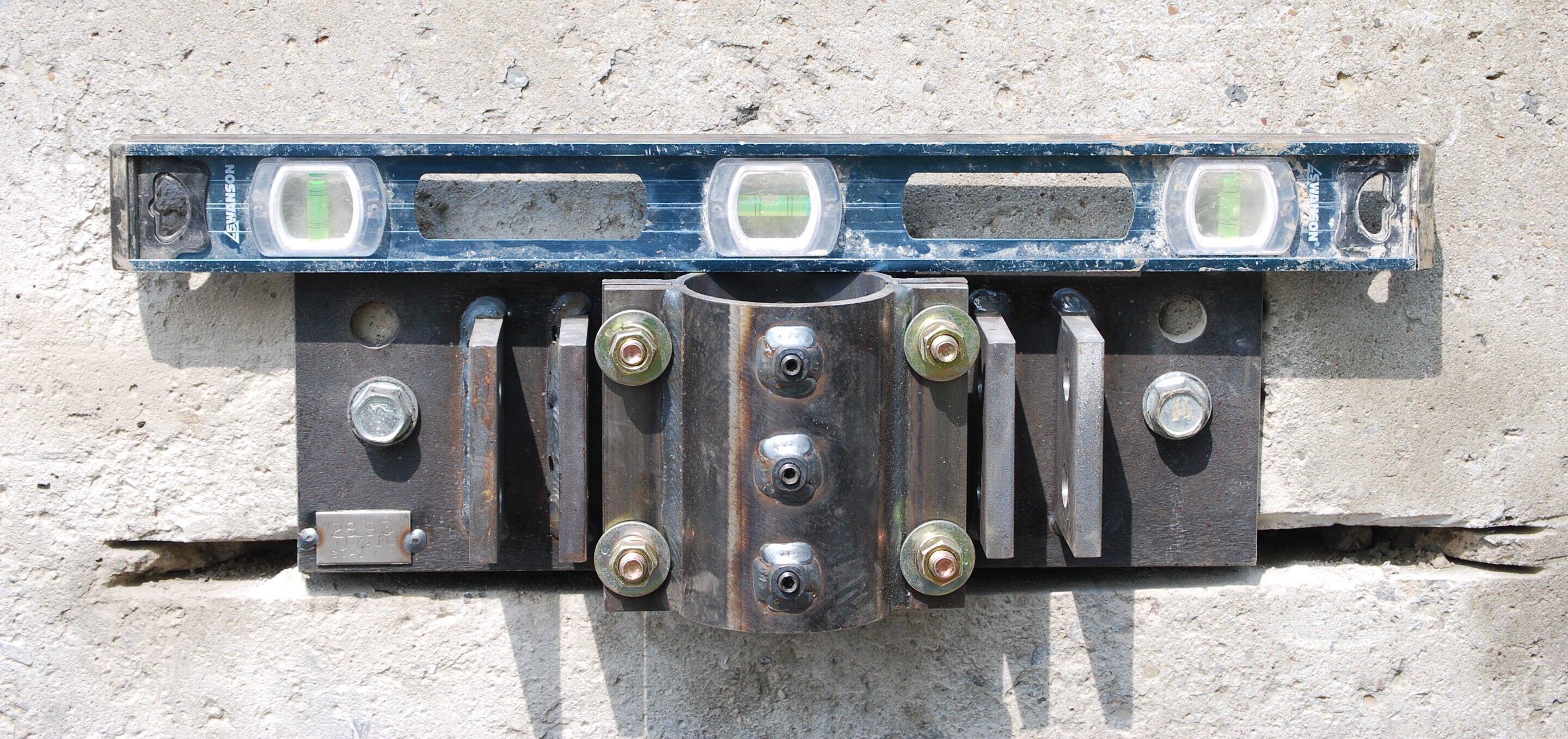Your Foundation Repair Options Explained: 4 Types of Foundation Repair
September 11th, 2024 | 2 min. read
By Sarah Etler

While foundation repair is one of those things we all hope we never need, the unfortunate reality is that foundations move, shift, and settle.
If you’ve found your home is suffering from foundation damage, being aware of all the options available will help you make an informed decision, and in this article, we’re covering 4 different types of foundation repair.
1. Concrete Lifting
Concrete lifting, also known as concrete leveling, is most often associated with lifting settled sidewalks, driveways, or concrete floor slabs.
However, this concrete repair method can also be used to lift foundations for homes built on concrete slabs rather than those with a traditional below-grade basement foundation.
It’s concrete leveling, but on a larger scale – lifting and leveling your entire home rather than just a patio or driveway.
The process begins by drilling a series of holes in the affected area. Through these holes, a leveling compound is injected, filling the voids beneath the concrete and raising the foundation. One of the key advantages of concrete lifting is its relatively low cost compared to more complex foundation repair methods.
2. Concrete Piers
Concrete piers are a traditional method for foundation repair. These pour-in-place piers are incredibly durable, providing a long-term solution to foundation problems.
However, the installation process is labor-intensive, involving significant excavation to create the necessary holes for the piers. This additional labor can drive up costs and make cleanup more challenging.
3. Helical Piers
Helical piers, also known as screw piles, are highly versatile and can be used for both exterior foundation repairs and interior slab repairs. They essentially “screw” into the ground, and they don’t have to reach bedrock to support the home due to the larger surface at the end.
Helical piers are suitable for various soil conditions and can offer a permanent solution. Because they screw into the ground rather than rely on the weight of the structure itself, they are often used in new construction.
4. Push Piers
Push piers are constructed from steel pipe. These piers are hydraulically driven deep into the ground, and additional sections of pipe are added until they reach bedrock.
Push piers are particularly effective in situations where the foundation has already started to settle.
Recognizing Signs of Foundation Problems
As a homeowner, you're the first line of defense against foundation issues – early detection is key to preventing more extensive damage. Here are some common signs that your foundation might need attention:
- Cracks: Cracks in your foundation, whether inside or outside, are often the first indication of a shifting foundation.
- Leaky Basement: Water seeping into your basement can be a sign of a compromised foundation.
- Bowed Walls or Sagging Floors: If you notice walls bowing or floors sagging, it can be a strong sign of foundation damage.
- Gaps Around Windows and Doors, or Sticking: Large gaps around windows and doors may indicate that your foundation is settling. You may also experience difficulty opening or closing your windows or doors.
Learn More: 4 Early Signs of Foundation Damage in Your Home
Which Foundation Repair Method Is Right for You?
Every home and foundation is unique, which means there’s no one-size-fits-all foundation repair method.
The type of foundation repair you may need can vary depending on the damage, soil conditions, home position, and other conditions around your property.
The best way to determine which foundation repair option is the best for your home is to get in touch with a structural engineer and/or foundation repair expert. While it’s good to be aware of the different options out there, experienced professionals will be able to guide you toward the right one for your unique situation.
A-1 Concrete Leveling specializes in lifting settled concrete slabs (think driveways, sidewalks, and patios), but some of our nationwide locations offer foundation repair services. Learn more about foundation repair with our online resource library, Concrete Academy, or request an estimate today!
Sarah Etler joined A-1 Concrete Leveling after receiving her Bachelor of Arts degree in English from Northern Kentucky University. As A-1's Content Marketing Manager, she works closely with industry experts to produce content that will best answer questions related to concrete repair and maintenance practices. Sarah loves living a life full of discovery and is excited every day to see what new things she can learn and share with those around her.
Topics: